London , 23 Rabi’ul Akhir 1436/13 February 2015 (MINA) – A new analysis of official data in UK 2011 census has found that the Muslim population of England and Wales is growing faster than the overall population, with a higher proportion of children and a lower ratio of elderly people.
“It nails some significant myths about Muslims,” Omar Khan, from the race equality think tank the Runnymede foundation, told BBC Asian Network, On Islam quoted by Mi’raj Islamic News Agency (MINA) as reporting.
“The numbers of Muslims, which is often exaggerated; how proud Muslims are to be British; how well they fit in; and the narrative around British values.
“They’re proud to call themselves British, don’t have allegiances to other countries in any major way, and they don’t have any confusion around where their identity lies.”
Also Read: Hundreds Rally in Stockholm to Condemn Israeli Attacks and Ceasefire Violations in Gaza
According to the analysis, published by the BBC, one in 12 schoolchildren were Muslim as the total number of Muslims in the UK rose from 1.55m in 2001 to 2.7m in 2011.
It suggests that the number of British Muslims has grown quickly since 2001, with a third aged 15-or-under at the time of the 2011 census. There were 329,694 Muslim full-time students in 2011 – 43% female and 57% male.
The reports said 24% of Muslims over the age of 16 are qualified to degree level, compared to 27% the general population.
But, it suggests that 71% of Muslim women between the ages of 16 and 24 were not in employment, compared to approximately half the general population.
Also Read: Mass Protests Erupt in Bologna Against Israeli Teams Ahead of EuroLeague Match
Half the Muslims in England and Wales were born there and almost three-quarters (73%) identify themselves as British. Two-thirds of Muslims are ethnically Asian and 8% are white.
Moreover, it revealed that 46% of British Muslims live in the some of the most deprived local authority districts in England, putting a question mark on having equal rights in their country.
Challenges
The analysis, the most comprehensive about British Muslims, cleared misconceptions about the religious minority.
Also Read: Finland’s Largest Retailer Halts Israeli Product Sales
“The report is the first comprehensive and detailed report of its kind looking at Muslims from a data perspective,” Muslim Council of Britain’s (MCB) said.
Dr Sundas Ali, analyst for the Muslim Council of Britain report, told BBC that the report was a “frank snapshot” of Muslim life. She added that there were many positives from the report “but also many challenges”.
“We do tell Muslim mosques and charities that these are the problems, these are the social realities and you need to do something about it,” she said.
“It’s not a document complaining to the government just about what they need to do, it’s targeting a number of people, including Muslim civil society,” she added.
Also Read: 1,000th Western Military Supply Plane Lands in Israel Since Gaza War
Responding to the report, the deputy prime minister, Nick Clegg, said: “I believe that every person, whatever their background and circumstances, should have an equal chance to thrive.”
“What’s not in doubt is that British Muslims can be proud of the contribution they make to our country.”
Clegg added: “Drawing on analysis like this, together we can help create jobs, drive growth and enable more people to get on – building the stronger economy and fairer society we want for Britain’s future.”
The figures show that Muslims make up 20% or more of the electorate in 26 constituencies and live in all local authority areas in England and Wales.
Also Read: Harvard Builds Archive of Israeli Life, Preparing for “May Not Survive”
“There has been a spreading-out effect and this has accelerated in the past 10 years,” said Sundas Ali, a sociologist at Oxford University. (T/P011/R03)
Mi’raj Islamic News Agency (MINA)
Also Read: German Opposition Party Urges End to the Suppression of Pro-Palestinian Movement








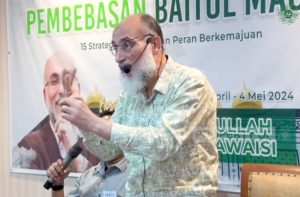
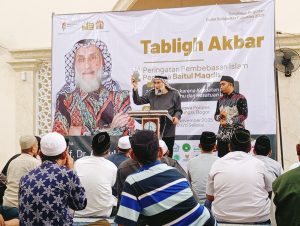

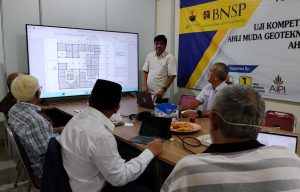

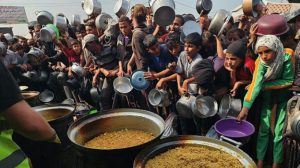


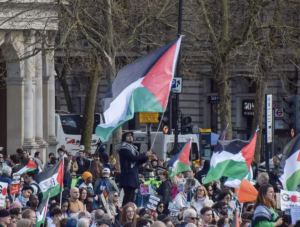


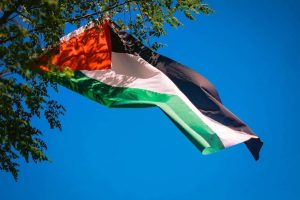
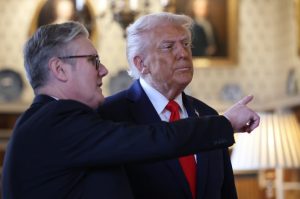
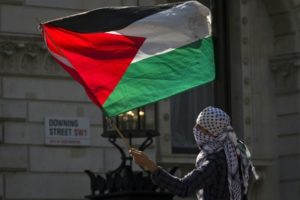














 Mina Indonesia
Mina Indonesia Mina Arabic
Mina Arabic